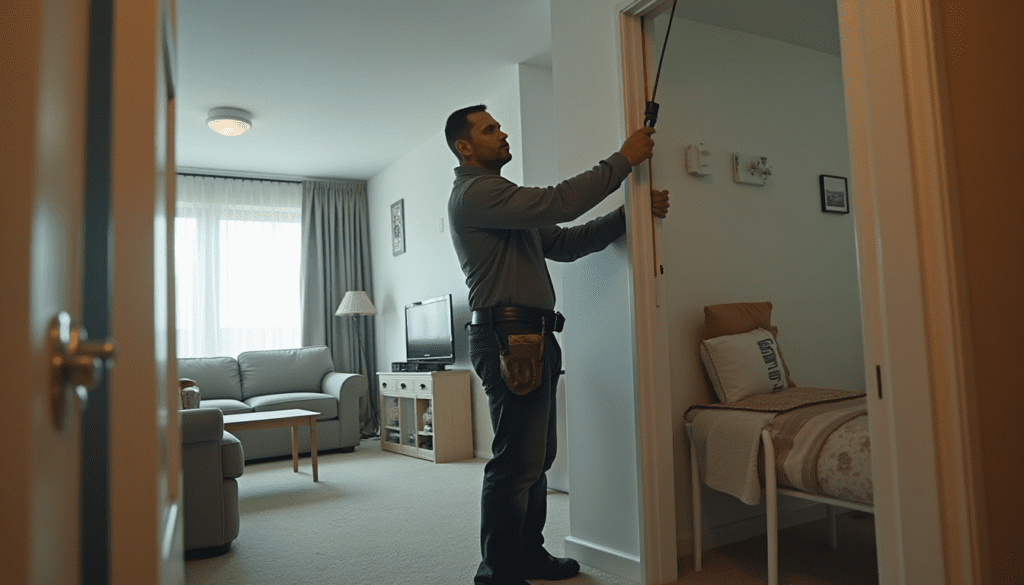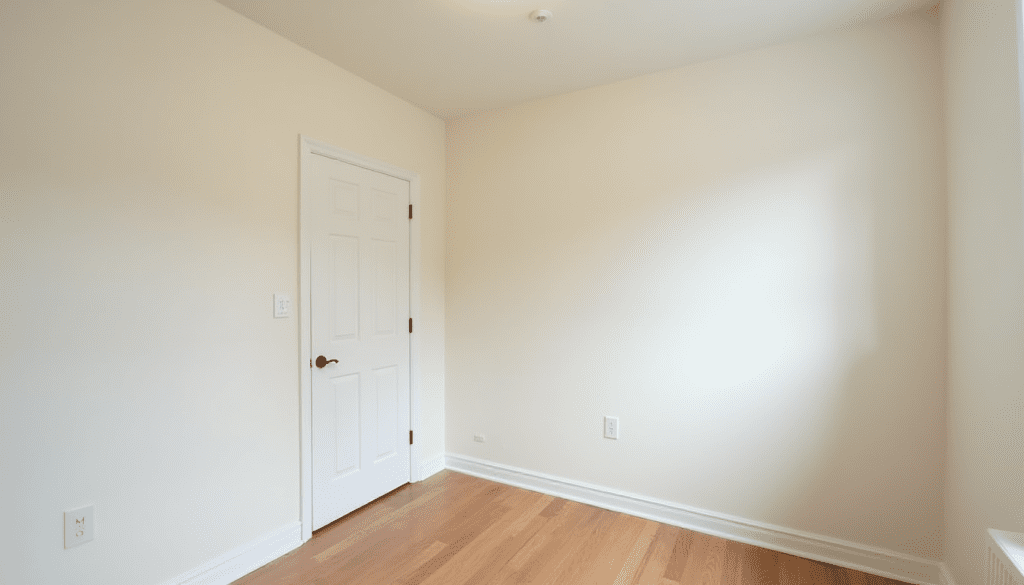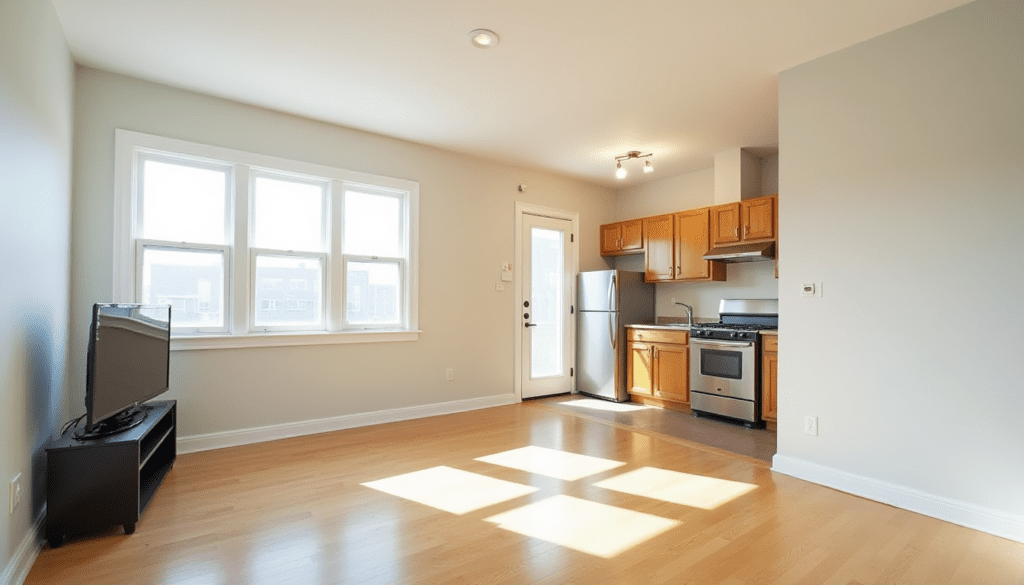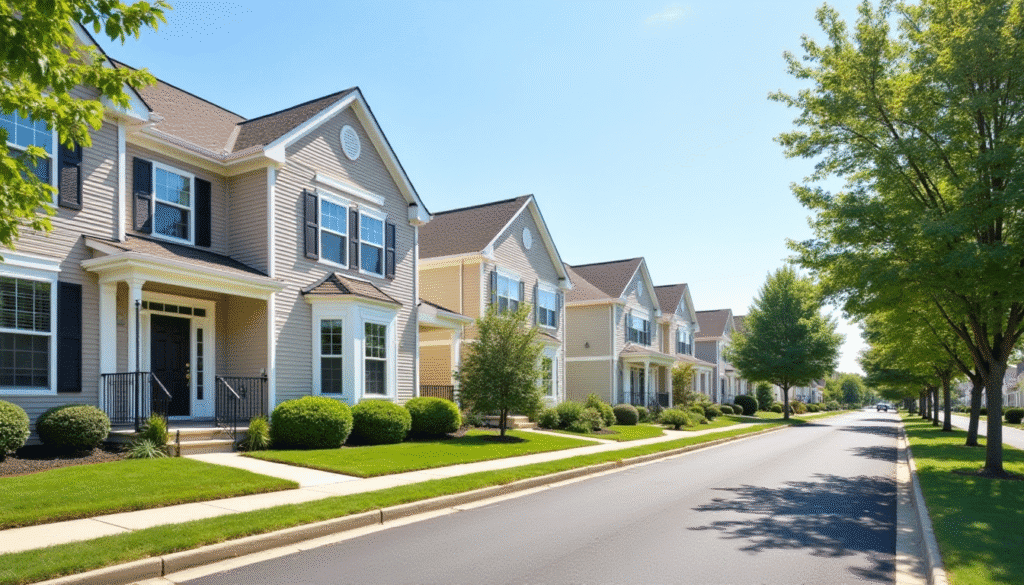1. Introduction: Why Late Rent Payments Are a Common Challenge in Plainfield, NJ
Landlords in Plainfield, New Jersey face a growing concern: tenants who repeatedly pay rent late. It’s not just about missing a due date — late payments put strain on your finances, disrupt cash flow, and may lead to legal complications if not handled properly. In a city like Plainfield, where market rents, cost of living, and employment patterns vary widely, understanding the causes and managing late rent payments becomes crucial not just to protect your investment, but to maintain a stable landlord-tenant relationship.
Throughout this post, we’ll explore practical strategies rooted in local law, communication, lease design, and property-management tools to reduce habitual lateness, preserve landlord rights, and help tenants meet their obligations. If you follow these steps, you can go from reacting to late payments to preventing them — or at least reducing their frequency.
2. Understanding the Financial Impact of Late Rent on Landlords
When rent comes late, it’s not just the missed income for that month. There are cascading costs:
- Cash flow constraints: Mortgage payments, taxes, insurance, maintenance — many of these are due on fixed schedules. A late rent disrupts your ability to meet them on time.
- Administrative burden: Following up via phone calls or notices, tracking payment dates, sometimes preparing legal notices or working with attorneys or courts all costs time and money.
- Late fees and potential legal costs: If your lease allows, you may charge late fees, but if those aren’t enforced carefully (or are challenged in court), they may not yield as much as you expect. Legal filings (in eviction proceedings) add up quickly.
- Potential property damage or neglect: Tenants who struggle to pay rent may also defer maintenance or cause damage, further increasing your expenses.
- Vacancies and turnover risk: If a tenant is evicted or moves out due to conflicts over late payments, you may face vacancy periods and the costs of finding and screening a new tenant.
3. Common Reasons Tenants Pay Rent Late
To fix a problem, you first need to understand its root causes. Some frequent drivers of late rent in Plainfield, NJ include:
- Irregular income: Many tenants work hourly jobs, shift work, gig economy roles, or hourly wage positions. Paychecks don’t always align with the first of the month.
- Unexpected expenses: Medical bills, car repairs, emergencies can consume what was earmarked for rent.
- Poor budgeting or financial management: Some tenants may not have a buffer, savings, or a plan, so a late payment for one expense delays everything else.
- Lack of clarity in lease terms: If lease doesn’t clearly define due dates, grace periods, late fees, tenants may not realize consequences or may assume more flexibility than you expect.
- Communication breakdowns: Sometimes tenants believe they’ve paid or will pay, but you didn’t receive it (checks lost, transfers late), or notices and reminders were unclear.
4. Local Rental Market Trends in Plainfield, NJ
Knowing what’s happening locally helps you set realistic policies and expectations. In Plainfield:
- Rent levels: Plainfield offers a mix of older homes, multi-family units, and renovated apartments. Depending on neighborhood and unit type, rents vary significantly. This variability means many tenants are close to their financial limits.
- Economic pressures: Costs of utilities, commuting, and healthcare can eat into renters’ budgets. Inflation can exacerbate these issues, pushing tenants to prioritize other bills first or delay rent.
- Tenant turnover & availability: In some Plainfield neighborhoods, there’s less vacancy and higher demand, which gives landlords more leverage. But that same demand drives up rent costs and may lead to tenants stretching budgets.
- Local policies & assistance programs: Plainfield and Union County may offer rental assistance or emergency aid programs. During certain times (e.g. after emergencies or during economic downturns), more tenants may rely on assistance. You should know what local programs exist, which tenants might access them, and how that affects payment behavior.
5. Legal Protections for Landlords in New Jersey
New Jersey law provides several protections and defined procedures to help landlords manage tenants who pay late. Understanding these is key so you enforce your lease fairly and legally.
Grace Periods & Late Fee Rules
Under N.J.S.A. § 2A:42-6.1, landlords must give certain renters (senior citizens or those receiving certain pensions or benefits) a five business-day grace period before charging a late fee. For most renters, there is no mandatory grace period unless the lease specifies one.
Late fee policies must be spelled out in the lease. There is no set statutory maximum late fee for all landlords in NJ, but courts tend to consider whether a late fee is reasonable and whether it reflects actual administrative or collection costs.
Eviction & Notice Requirements
If tenants continue to pay rent late, New Jersey law allows landlords to pursue eviction. For “non-payment of rent,” landlords don’t always need to give a “Notice to Quit” first; they may file a complaint in court depending on the situation. However, for repeated late payments (habitual lateness), landlords often issue a Notice to Cease first, which gives tenants warning and a chance to fix the issue. Continued violation may lead to a Notice to Quit or eviction action.
Eviction Timeline Basics
The time it takes to evict a tenant in New Jersey for nonpayment or habitual late rent depends on several variables: whether proper notice was given, whether the tenant responds or pays, court schedules, and whether there are local assistance or hardship stay options.
Anti-Eviction Protections & Good Cause
New Jersey’s Anti-Eviction Act (N.J.S.A. 2A:18-61.1) requires “good cause” to evict tenants in many residential rental settings. Habitual late payment can be considered good cause, but the landlord must document the behavior (when rent was late how often, notices given, etc.). Courts will evaluate “all facts and circumstances” rather than just a simple count of late rents.
6. Establishing Clear Lease Agreements to Prevent Late Payments
The foundation of avoiding chronic late rent issues lies in your lease agreement. A vague or poorly written lease gives tenants wiggle room, which can work against you in both daily management and court proceedings. In Plainfield, NJ, landlords should ensure their leases include the following key details:
- Exact due date: State the rent is due on the 1st (or another date), with no ambiguity.
- Grace period terms: If you offer one, outline exactly how many days it lasts and what happens after it ends.
- Late fee structure: Specify the amount and how it is calculated (fixed fee, percentage, daily accrual).
- Accepted payment methods: List whether you accept online payments, checks, or direct deposits, and any restrictions.
- Consequences of late payments: Detail steps taken after repeated lateness, including warnings, legal notices, or eviction proceedings.
Having these clauses written clearly makes it easier for tenants to understand obligations and for you to enforce them if disputes arise. Many landlords in Plainfield choose to work with property management companies or local landlord-tenant attorneys to draft lease language that aligns with New Jersey law.
7. Importance of Tenant Screening Before Leasing
Prevention begins before you even hand over the keys. Comprehensive tenant screening is one of the most effective ways to reduce the chances of dealing with late payments later. Screening should go beyond just checking a credit score — landlords should also evaluate:
- Employment verification: Confirm steady income and job history. Ideally, monthly income should be at least 2.5 to 3 times the rent.
- Rental history: Contact past landlords to ask about timeliness of rent payments, behavior, and adherence to lease terms.
- Credit history: While a single missed payment years ago may not matter, patterns of delinquency are red flags.
- Eviction records: Previous evictions often signal a higher risk for repeated issues.
In Plainfield’s competitive rental market, it might be tempting to skip thorough screening in order to fill a vacancy quickly. However, skipping due diligence often leads to greater costs down the line when rent problems surface.
8. Building Strong Communication with Tenants
Even the most airtight lease cannot replace effective communication. Tenants are far more likely to cooperate if they feel respected and understood. Strong communication reduces misunderstandings about due dates, policies, or late fee enforcement. Some practices landlords in Plainfield can adopt include:
- Welcome letters: After signing the lease, provide tenants with a clear outline of rent policies in writing.
- Regular check-ins: Reach out periodically to ensure there are no unresolved issues or confusion.
- Written reminders: Use emails, texts, or letters a few days before rent is due.
- Respectful tone: Approach late payments with professionalism rather than hostility — it encourages cooperation.
Good communication doesn’t excuse late rent, but it reduces surprises and builds trust. Tenants who feel respected are more likely to be proactive about notifying you if they’ll be late and working out solutions.
9. Offering Grace Periods vs. Stricter Policies
Deciding whether to provide a grace period can be tricky. Grace periods can be tenant-friendly, helping those who get paid a few days after the 1st of the month. However, they may also encourage chronic lateness if tenants assume extra days are always available. Here are the pros and cons:
- Pros of Grace Periods: Tenants feel supported, flexibility can improve landlord-tenant relationships, and seniors in NJ legally must be offered one under certain conditions.
- Cons of Grace Periods: Tenants may abuse the system, consistency is harder to enforce, and landlords face cash flow disruption.
Some landlords in Plainfield find success by setting a strict due date with no formal grace period but offering leniency case-by-case when a tenant communicates proactively. Others enforce grace periods but tie them directly to late fees to encourage timely payments. The key is consistency and aligning policies with your business goals.
10. Using Technology for Rent Collection (Online Portals, Auto-Pay, Reminders)
Technology has made it easier than ever for landlords to collect rent consistently and on time. Gone are the days of waiting for checks in the mail. In Plainfield, many landlords adopt platforms like Buildium, AppFolio, or PayRent to simplify rent collection. The benefits include:
- Automatic payments: Tenants can set up recurring payments, reducing “I forgot” excuses.
- Payment tracking: Both you and your tenants can see records in real time, creating transparency.
- Digital reminders: Automated emails or texts remind tenants before rent is due.
- Multiple payment methods: Tenants can use debit, credit, or bank transfer, accommodating varied financial situations.
For landlords managing multiple properties in Plainfield, technology also reduces administrative workload by centralizing all rent payments and histories in one place. Tenants often prefer online options because they provide convenience and immediate confirmation.
11. When to Apply Late Fees—and How Much You Can Charge in NJ
Late fees are one of the most direct ways to discourage tenants from paying rent late. In New Jersey, there isn’t a statewide cap on late fees, but courts require that fees be “reasonable” and not excessive. A good rule of thumb is to set late fees that reflect the administrative costs of chasing rent, such as $50 or a small percentage of monthly rent.
To apply late fees effectively in Plainfield:
- Put it in writing: The lease agreement must clearly spell out the fee amount and when it applies.
- Be consistent: Applying fees unevenly could expose you to discrimination claims or weaken your case in court.
- Align with grace periods: Fees should only kick in after any legally required or lease-provided grace period has expired.
- Document everything: Keep records of when rent was due, when it was received, and when fees were applied. This helps in disputes or eviction cases.
Many landlords in Plainfield set a flat late fee for simplicity, while others choose a daily accrual model until rent is paid. Regardless of your approach, the key is to ensure the amount is not so high that a judge would deem it a penalty rather than a fair charge.
12. Working Out Payment Plans with Struggling Tenants
Not every late-paying tenant is irresponsible. Some genuinely experience financial hardship. Offering a structured payment plan can be a win-win: tenants stay housed, and you receive your rent without going through the costly eviction process.
Payment plans should always be written agreements and include:
- Specific terms: Break down exactly how much is due, on what dates, and for how long.
- Consequences for failure: Make it clear that failure to follow the plan may result in eviction proceedings.
- Partial rent acceptance: Be careful here. Accepting partial payments can sometimes complicate eviction timelines in New Jersey. Always consult legal guidance before finalizing terms.
Many landlords in Plainfield also refer tenants to Union County rental assistance programs to help bridge gaps. This protects landlords’ cash flow while helping tenants regain stability.
13. The Role of Professional Property Management in Plainfield, NJ
Managing late payments, legal notices, and tenant communication can be overwhelming, especially if you own multiple units. This is where hiring a professional property management company in Plainfield can make a significant difference.
Property management services often include:
- Automated rent collection systems
- Strict enforcement of lease agreements
- Legal compliance and preparation of notices
- Tenant screening and placement services
- Communication management with tenants
A reputable management company acts as a buffer, so landlords don’t have to chase rent payments or get involved in uncomfortable conversations. This also ensures you stay compliant with New Jersey’s landlord-tenant laws while protecting your time and investment.
14. Steps to Take Before Starting the Eviction Process
Eviction should always be a last resort. Before filing, landlords in Plainfield should take these preliminary steps:
- Communicate first: A simple reminder or conversation may resolve the issue.
- Send written notices: Deliver late rent notices according to lease and NJ law requirements.
- Document behavior: Keep a record of all missed payments, notices, and communication attempts.
- Offer alternatives: Such as payment plans, moving to a smaller unit, or accessing rental assistance programs.
Taking these steps shows the court that you acted fairly and reasonably, which strengthens your position if eviction proceedings become necessary.
15. Eviction Laws and Timelines in New Jersey
When all else fails, eviction may be necessary. In New Jersey, eviction is highly regulated and requires strict adherence to the law. Here’s what Plainfield landlords need to know:
- Habitual lateness: To evict a tenant for repeated late rent, landlords typically must first serve a Notice to Cease. If the tenant continues to pay late, a Notice to Quit or direct eviction complaint may follow.
- Nonpayment of rent: For outright nonpayment, landlords can file a complaint without a prior notice in many cases, though documentation of late or missed payments is essential.
- Court process: Landlords must attend a hearing where the tenant can defend themselves. If the landlord prevails, a judgment for possession may be granted.
- Timeline: Eviction in New Jersey can take anywhere from 4 to 12 weeks depending on court schedules and whether the tenant contests the case.
Importantly, the New Jersey Anti-Eviction Act requires landlords to demonstrate “good cause” for eviction, and courts carefully review claims of habitual lateness. Judges often consider how many times the tenant was late, how quickly they paid afterward, and whether the landlord communicated effectively. Documentation and consistency are key to success in these cases.







